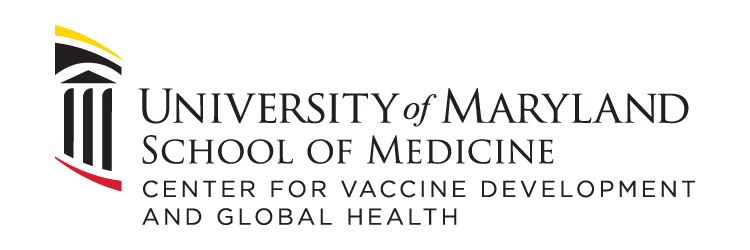April 30, 2024 | Andrew Lentini
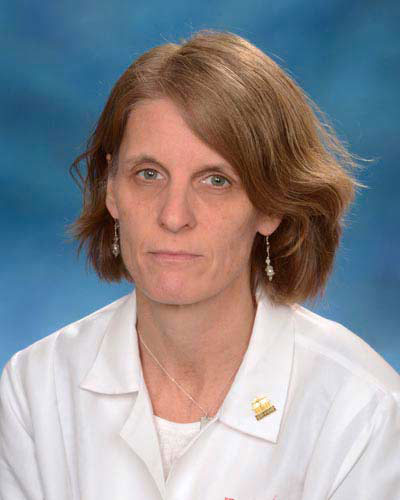
In a recent study led by Kirsten E. Lyke, MD, Professor of Medicine at the University of Maryland School of Medicine Center for Vaccine Development and Global Health, researchers used the Dengue Human Infection Model (DHIM) with Dengue Virus serotype 1 for the first time to evaluate the efficacy and safety of a dengue virus vaccine.
Dengue is one of the most significant arboviral diseases affecting humans globally, with about half of the world's population at risk. The World Health Organization has listed dengue as one of the top ten global health threats. The disease, caused by the dengue virus, has four different serotypes, contributing to its complexity and the challenges in vaccine development. Aedes mosquitoes, thriving in urban and semi-urban areas and spreading due to climate change, transmit the virus.
In January 2021, researchers enrolled ten eligible participants in the study. Six participants received a purified inactivated vaccine followed by a live-attenuated vaccine booster, while four participants in the control group received no vaccine. Approximately three years after the booster dose, the researchers exposed these participants to a weakened form of the dengue virus serotype one. Five out of six vaccine recipients and all controls developed dengue fever. The dengue vaccine recipients, however, not only remained unprotected against the Dengue Virus but also suffered earlier infections and more severe symptoms and showed increased inflammatory responses compared to the controls, indicating possible antibody-dependent enhancement. This phenomenon occurs when pre-existing but partial immunity to dengue leads to more severe disease. This approach demonstrated the complex nature of the human response to the dengue vaccine. It underscored the significance of using small cohort, human challenge models to study dengue pathogenesis and mitigate risks before vaccine widespread deployment.
"These results underscored the effectiveness of small human challenge models," said Dr. Lyke. "In our small study group, we identified that the vaccine might lead to Antibody-Dependent Enhancement—a risky complication that can lead to serious adverse effects if the vaccine had progressed to broader field trials. That's precisely why this trial was crucial. The key takeaway isn't that the vaccine failed to offer protection; rather, it's that we successfully halted its development early enough to prevent potential harm to volunteers in later-stage trials."
The Study's Findings:
The trial's results were revealing and pivotal. Despite the vaccine's initial promise, vaccinated participants exposed to the dengue virus displayed insufficient protection compared to their unvaccinated counterparts. The findings indicated the potential for Antibody-Dependent Enhancement (ADE), where pre-existing antibodies could worsen the infection.
Antibody-Dependent Enhancement is a phenomenon where the antibodies generated during an immune response to certain viruses can paradoxically enhance the infection rather than protect against it. This phenomenon raises significant concerns in vaccine development and treatment strategies for viral infections, as it challenges the traditional assumption that having antibodies against a virus is always beneficial.
U.S. Army's Response:
These insights prompted a strategic pivot in the U.S. Army's vaccine development approach, emphasizing the model's value in preemptively identifying risks. The Army's decision to deprioritize the vaccine's development before field trials underscored a proactive commitment to safety and efficacy, sparing potential adverse effects on a larger scale.
The Broader Implication:
This study underscores the DHIM's vital role in vaccine development, particularly for complex diseases like dengue, where the immune response can be unpredictable. By providing a controlled environment to identify potential issues like ADE, the DHIM acts as a crucial buffer, ensuring that only the most efficacious and safe vaccines advance to widespread use.
"As we continue to innovate in vaccine development, especially for complicated infections such as dengue, we need a rigorous approach to ensure the safety and efficacy of these products before they enter larger populations," said Miriam Laufer, MD, Professor of Pediatrics, Interim Director of the Center for Vaccine Development & Global Health and Director of the Office of Student Research in the School of Medicine. "Generating evidence about vaccine safety and efficacy is vital to our mission at the Center for Vaccine Development and Global Health. We integrate rigorous pre-clinical evaluations and clinical trials to identify early safety issues and potential health impacts during wider public use. Our use of dengue human challenge models shifts the paradigm in vaccine development. This study is a testament to the critical importance of human challenge models in the ongoing quest to combat global health threats effectively and safely."
UMSOM faculty and co-authors of the paper include Joel Chua, MD, Sudaunshu Joshi, MS, Kathleen Strauss, BA, Hernando Guitierrez-Barbosa, MS, Biraj Shrestha, MS, Christopher Culbertson, MA, Paula Bernal, PhD, Robert Edelman, MD.
Researchers and faculty from the Viral Diseases Branch and the Pilot Bioproduction Facility, Walter Reed Army Institute of Research, and the Department of Microbiology and Immunology, State University of New York Update Medical University also contributed to this research. The group comprises the Dengue Human Challenge Consortium, which is dedicated to optimizing Dengue serotypes 1-4 live virus human challenge.
Now in its third century, the University of Maryland School of Medicine was chartered in 1807 as the first public medical school in the United States. It continues today as one of the fastest growing, top-tier biomedical research enterprises in the world -- with 46 academic departments, centers, institutes, and programs, and a faculty of more than 3,000 physicians, scientists, and allied health professionals, including members of the National Academy of Medicine and the National Academy of Sciences, and a distinguished two-time winner of the Albert E. Lasker Award in Medical Research. With an operating budget of more than $1.2 billion, the School of Medicine works closely in partnership with the University of Maryland Medical Center and Medical System to provide research-intensive, academic and clinically based care for nearly 2 million patients each year. The School of Medicine has nearly $600 million in extramural funding, with most of its academic departments highly ranked among all medical schools in the nation in research funding. As one of the seven professional schools that make up the University of Maryland, Baltimore campus, the School of Medicine has a total population of nearly 9,000 faculty and staff, including 2,500 students, trainees, residents, and fellows. The combined School of Medicine and Medical System (“University of Maryland Medicine”) has an annual budget of over $6 billion and an economic impact of nearly $20 billion on the state and local community. The School of Medicine, which ranks as the 8th highest among public medical schools in research productivity (according to the Association of American Medical Colleges profile) is an innovator in translational medicine, with 606 active patents and 52 start-up companies. In the latest U.S. News & World Report ranking of the Best Medical Schools, published in 2023, the UM School of Medicine is ranked #10 among the 92 public medical schools in the U.S., and in the top 16 percent (#32) of all 192 public and private U.S. medical schools. The School of Medicine works locally, nationally, and globally, with research and treatment facilities in 36 countries around the world. Visit medschool.umaryland.edu
About the Center for Vaccine Development and Global Health at the University of Maryland School of Medicine
For over 40 years, researchers in the Center for Vaccine Development and Global Health (CVD) have worked domestically and internationally to develop, test, and deploy vaccines to aid the world’s underserved populations. CVD is an academic enterprise engaged in the full range of infectious disease intervention from basic laboratory research through vaccine development, pre-clinical and clinical evaluation, large-scale pre-licensure field studies, and post-licensure assessments. CVD has created and tested vaccines against cholera, typhoid fever, paratyphoid fever, non-typhoidal Salmonella disease, shigellosis (bacillary dysentery), Escherichia coli diarrhea, nosocomial pathogens, tularemia, influenza, coronaviruses, malaria, dengue, ebola and other infectious diseases. CVD’s research covers the broader goal of improving global health by conducting innovative, leading research in Baltimore and around the world. Our researchers are developing new and improved ways to diagnose, prevent, treat, control, and eliminate diseases of global impact, including COVID-19. In addition, CVD’s work focuses on the ever-growing challenge of antimicrobial resistance.
Contact
Andrew H. Lentini
Director of Media and Public Relations
Center for Vaccine Development and Global Health
University of Maryland School of Medicine
Related stories

Tuesday, April 30, 2024
Miriam K. Laufer Appointed Interim Director of the Center for Vaccine Development and Global Health
The University of Maryland School of Medicine (UMSOM) Dean, Mark T. Gladwin, MD, announced that Miriam K. Laufer, MD, Professor of Pediatrics, Medicine, and Epidemiology & Public Health, has been appointed as the Interim Head of UMSOM's Center for Vaccine Development and Global Health (CVD).
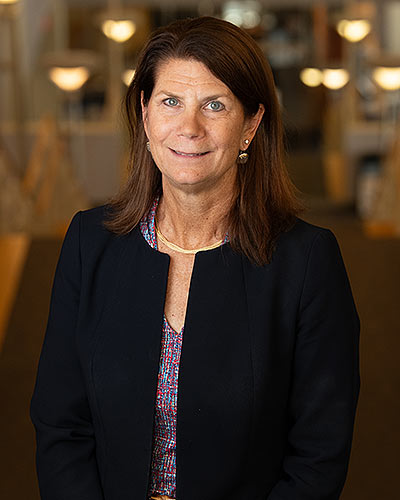
Thursday, March 28, 2024
NIH selects Dr. Kathleen Neuzil as Director of The Fogarty International Center
Kathleen M. Neuzil, MD, MPH, Director of the University of Maryland School of Medicine’s (UMSOM) Center for Vaccine Development and Global Health, has been named the 13th director of the Fogarty International Center (FIC), which is part of the National Institutes of Health (NIH). Dr. Neuzil will be the first woman to hold the permanent directorship since the center’s founding in 1968 and will also hold the position of Associate Director for International Research at NIH.
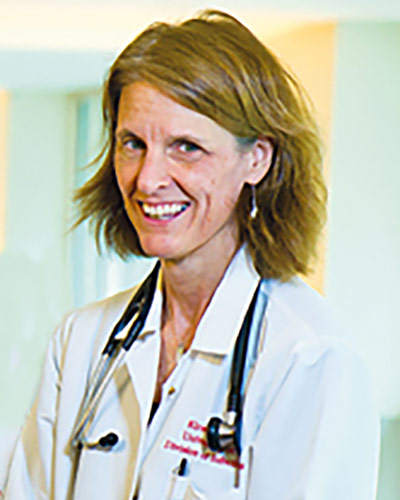
Thursday, October 12, 2023
UM School of Medicine's Kirsten Lyke Elected as Member of Prestigious National Academy of Medicine
Kirsten E. Lyke, MD, Professor of Medicine and Physician-Scientist at the Center for Vaccine Development and Global Health (CVD) at the University of Maryland School of Medicine (UMSOM), was elected this week as a new member of the National Academy of Medicine (NAM). She was recognized for her pivotal research in emerging infections and human challenge models that have informed and shaped global vaccine and public health policy.

Thursday, January 26, 2023
Small Study Shows Promise for Antimalarial Monoclonal Antibody to Prevent Malaria
A monoclonal antibody treatment was found to be safe, well tolerated, and effective in protecting against malaria in a small group of healthy volunteers who were exposed to malaria in a challenge study, according to new research published in by researchers at the University of Maryland School of Medicine (UMSOM).
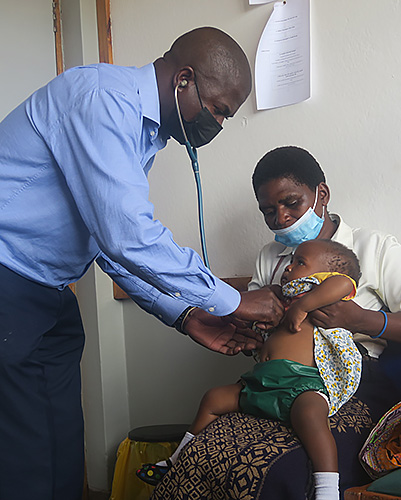
Tuesday, August 09, 2022
New Study Confirms Typhoid Vaccine Safety, Immune Response in Children
A new study, published in The Lancet Global Health, finds typhoid conjugate vaccine, Typbar TCV®, provides immunity for up to 3 years in children as young as 9 months old in Malawi. The research – conducted by the Blantyre Malaria Project, Malawi-Liverpool-Wellcome Trust, and researchers at the Center for Vaccine Development and Global Health (CVD) at the University of Maryland School of Medicine (UMSOM) – found that the TCV vaccine is safe and well tolerated. Importantly, the vaccine can be given to 9-month-old infants at the same time as routine measles-rubella vaccinations without reducing the immune response to either vaccine.
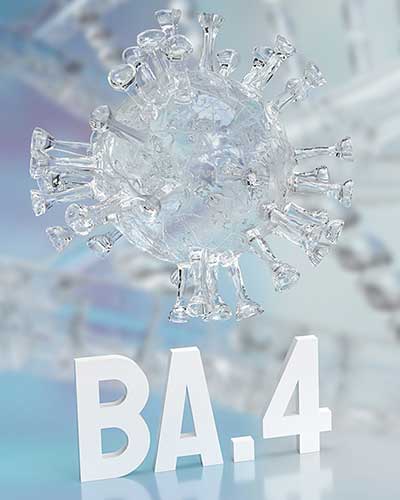
Monday, August 08, 2022
New Study Finds Rapid Decline in Vaccine-Boosted Neutralizing Antibodies Against Omicron Subvariant BA.5
A study led in part by investigators at the University of Maryland School of Medicine’s (UMSOM) Center for Vaccine Development and Global Health found that although COVID-19 booster vaccinations in adults elicit high levels of neutralizing antibodies against the Omicron variant of SARS-CoV-2, those antibody levels decrease substantially within three months. Kirsten E. Lyke, MD, Professor of Medicine at UMSOM and scientist at CVD, is Co-Chair and site Principal Investigator for the study, and Meagan Deming, MD, PhD, Assistant Professor of Medicine at the UMSOM, also a scientist at CVD, is Vice-Chair of the study, which is a collaboration between investigators at the UMSOM’s CVD and the Institute of Human Virology (IHV).
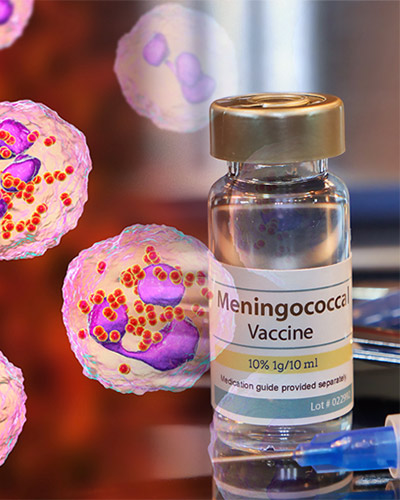
Thursday, March 24, 2022
UM School of Medicine Leads Research to Assess Meningococcal Vaccine for Infants and Young Children in Africa
Researchers at the University of Maryland School of Medicine (UMSOM)’s Center for Vaccine Development & Global Health (CVD) are leading a study to evaluate the use of a pentavalent – or five in one – meningococcal conjugate vaccine (NmCV-5) among infants and young children in the meningitis belt of sub-Saharan Africa. This is the final and pivotal study for World Health Organization (WHO) prequalification of this vaccine, which is the last stage to make the vaccine available for low- and middle-income countries.

Wednesday, January 26, 2022
Trial Co-led by University of Maryland School of Medicine Scientist Confirms Safety of “Mix-and-Match” COVID-19 Vaccine Booster Dosing
A University of Maryland School of Medicine (UMSOM), Center for Vaccine Development and Global Health (CVD), expert is co-leading an ongoing study that was pivotal in recommending adults and teens receive booster COVID-19 shots of their choosing starting in fall 2021. The preliminary clinical trial results, reported today in The New England Journal of Medicine, found that is safe and effective to receive boosters that are the same or a different one from the person’s primary vaccine(s).
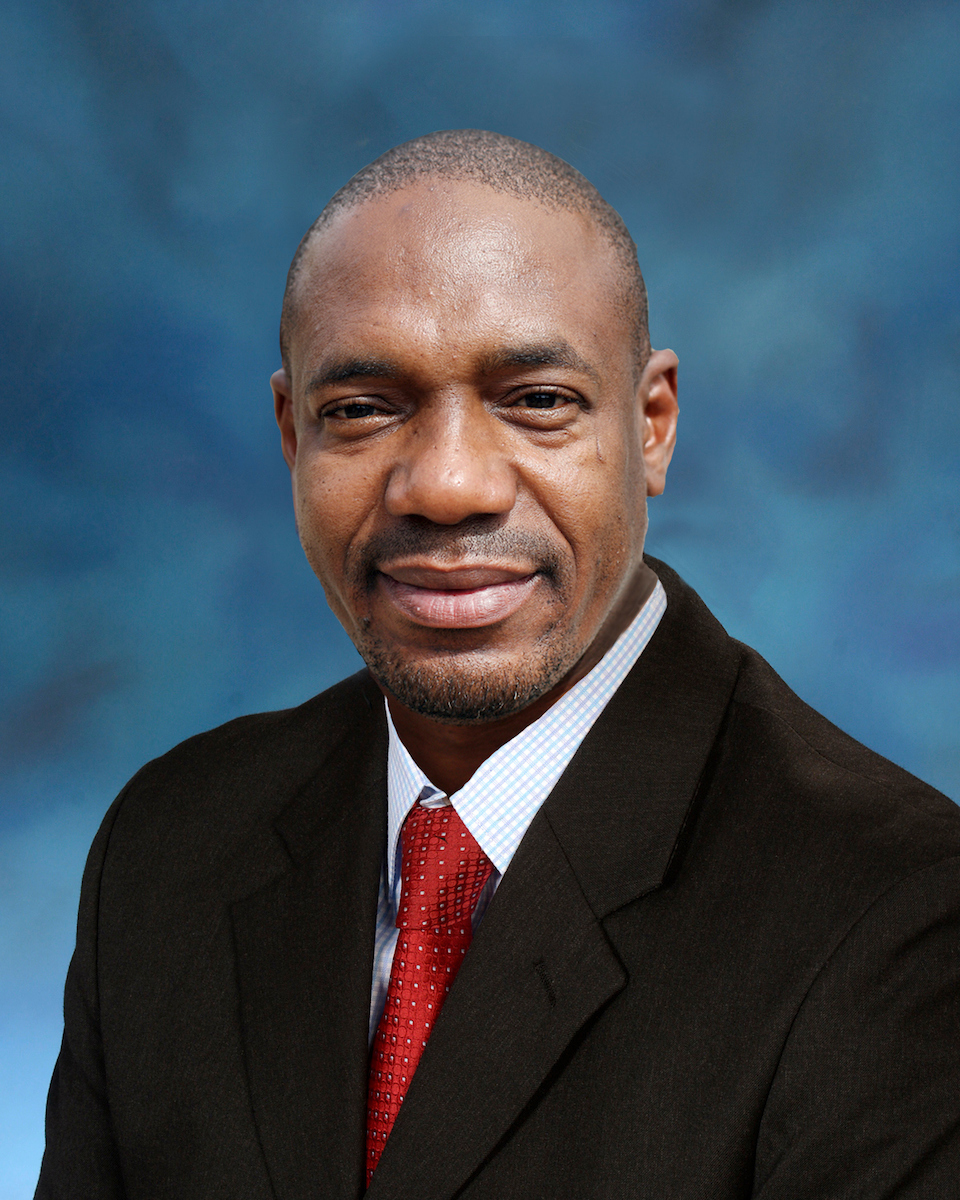
Tuesday, February 25, 2020
World Health Organization Names UMSOM Faculty Member as COVID-19 Advisor
Samba Sow, MD, MSc, FASTMH, Director General of the Center for Vaccine Development in Mali (CVD-Mali), and Adjunct Professor of Medicine at the University of Maryland School of Medicine (UMSOM), was appointed by the World Health Organization (WHO) to serve as a special envoy on issues related to coronavirus COVID-19.
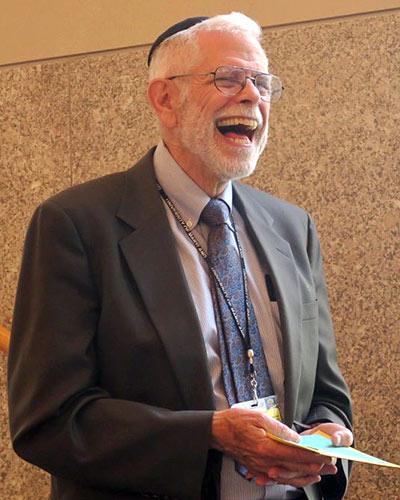
Friday, May 11, 2018
Honoring Dr. Robert Edelman for Three Decades of Service at UMSOM
Dr. Robert Edelman’s legacy will live long past his tenure at the Center for Vaccine Development and Global Health (CVD). Prior to an esteemed career in academia, he served in the military and the US public health service.
